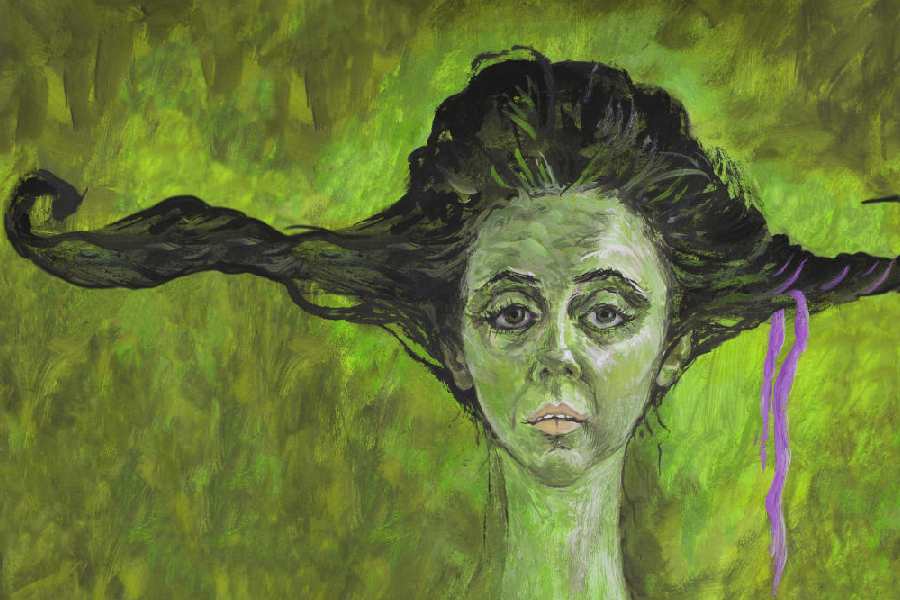I know someone who terrifies me because she wants everyone to die. No, she does not want to kill anyone. Or at least not with her own hands. But she wants people to die because she considers life to be obscene.
Especially when there is an excess of life. Or an excess of joy, which is a powerful expression of life, one would assume. It produces great distress in the person I know. For example, I once told her that I wanted to dance with joy after having found just the right dress. The look of horror in her eyes said — and it did not have anything to do with my lack of dancing skills — that after a certain age, or maybe at all ages, people should not dance with joy, but traipse, slowly, but certainly, towards the final exit, because that is all there is. It is not only stupid, but wrong, to forget Death. It is never, never, to be forgotten. Only the frivolous and the contemptible do so, looking for pleasure.
Life is a training for Death. She has been prepping me for years about the time that hormones recede, bones become brittle, flesh becomes loose, you become pure resignation. All such things are happening to me, except the last, so I remain a steady source of disappointment to her.
As for herself, she tries her best. For the last 40 years, from the time she was in her 20s, she has been saying that her journey is almost over; it is just a matter of a few more days.
This she says in a particular mournful tone, which is set as default and is steady. The only time that the tone changes and she is excited is when someone falls ill. When that happens, and the person deteriorates, she becomes even more excited, but her exterior takes on a great, meditative calm. I know she is hoping for the best for the ill, which is hoping for his last. I fear her the most then.
I have also taken to inventing small illnesses for myself, such as a crippling stomach ache, or severe diarrhoea, when speaking to her on the phone.
They please her a little.
She is most aghast, though, when she meets my mother. Despite everything, my mother defies the least of this person’s expectations. In her late 70s, my mother has been paralysed for 14 years, which has made her completely bed-bound now. She also suffers from advanced dementia. These two giant forces working together, however, if I may say so, have not been able to diminish her as a person. Or her appetite, for fried food especially. She still loves to meet people, old and new. Her eyes shine and her face lights up with a grand smile if anyone visits her — not many do. She has an amazing capacity to erase any sign of lack of recognition from her face, even if she is meeting a perfect stranger.
And she is still capable of laughing at people. Only my sister and I can understand that. She was, and still is, intolerant of people who were condescending, towards her or anyone, and even now, when a visitant arrives with a superior air, and perhaps infantilises her — because many consider her, with the paralysis and dementia, as less than a person — my mother and I, and if my sister is present, she, exchange wicked glances, and laugh secretly. We see that glint in her eye.
So imagine the predicament of the person who does not want to see me, or anyone, dancing with joy, when she meets my mother. On top of that, one recent evening when she was visiting, we had ordered begunis, which are deep fried brinjal fritters, special to Calcutta and perfectly sinful.
My mother had one beguni, then another, then another. She had four begunis, all the while smiling radiantly and benignly at her visitor, exhorting her with a very limited repertoire of words, to help herself to some, too. This, the lady refused. She had first looked disturbed and then angry. She finished her tea quickly, stood up and was about to leave. At the door she told me: “Onek hoyechhe. Ebar Didir chole jaoa uchit… Enough is enough. Now it’s time for Didi — my mother — to go.
My mother heard her. She and I exchanged glances. I saw that glint in her eye.
Perhaps it was only a twinkle.










